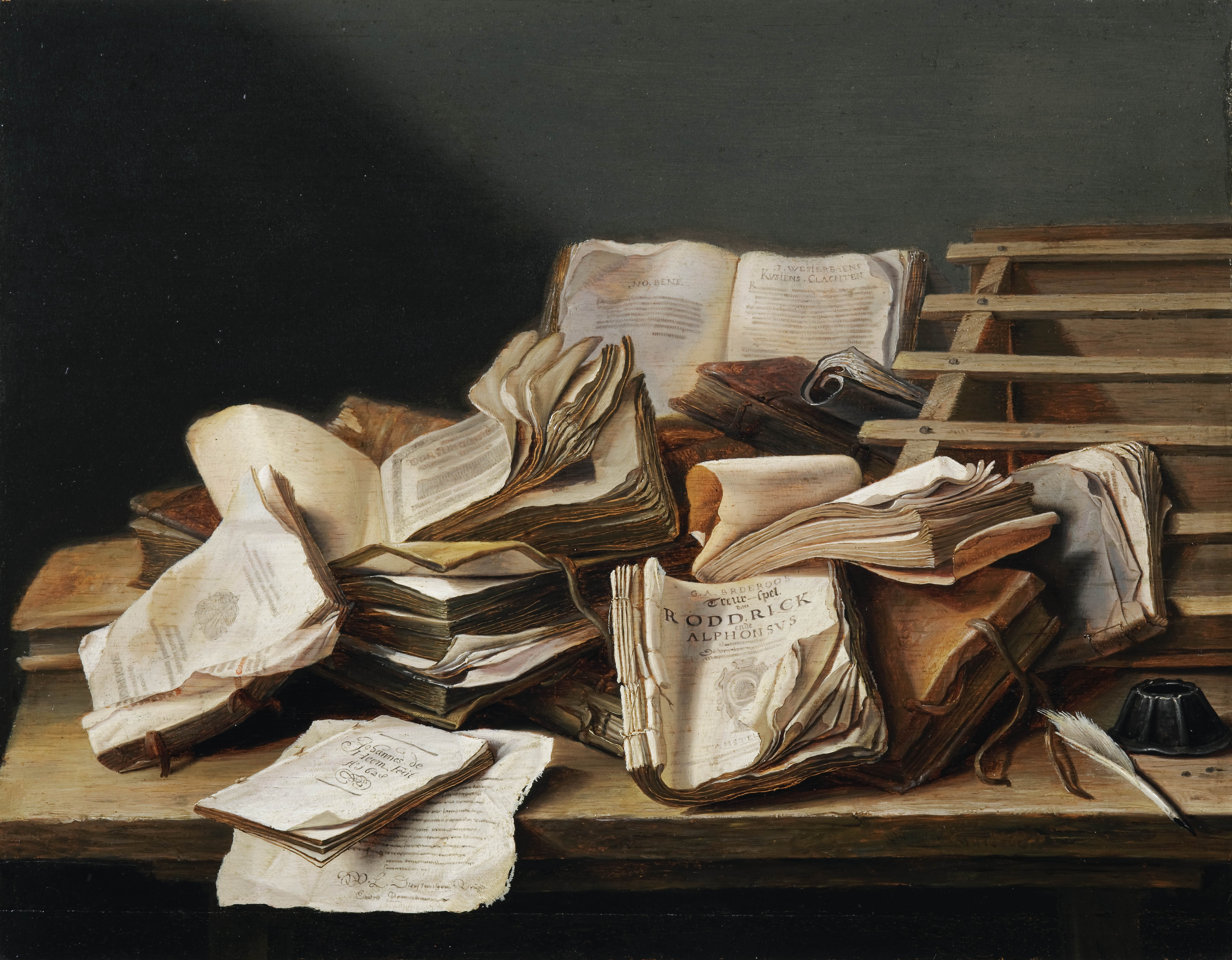Here you will find monographs and editorships published by the members of the Department of History since 2010.
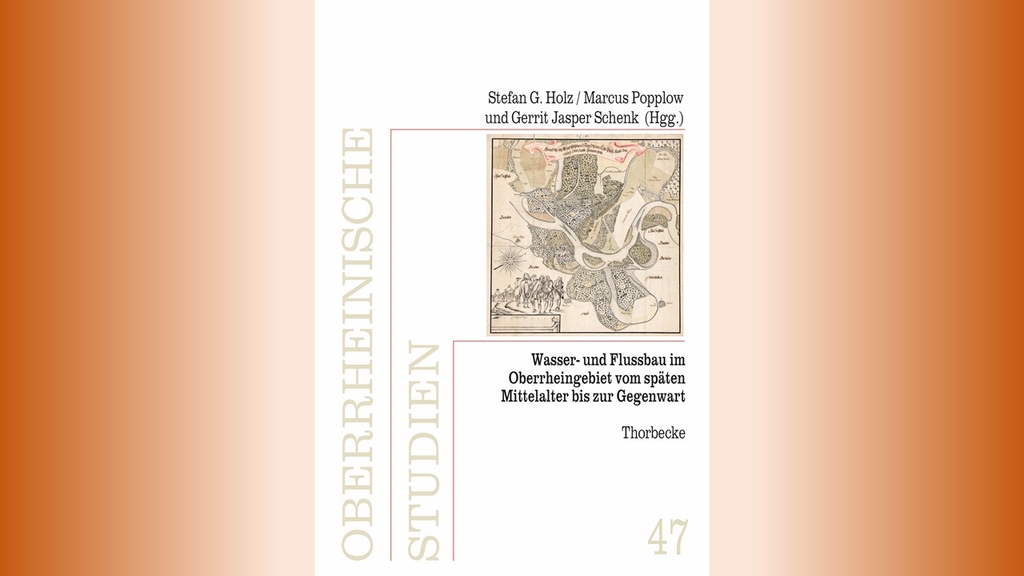
On November 10, 2025, the volume will be published in the series "Oberrheinische Studien" under the editorship of Marcus Popplow and others. The anthology consists of contributions that were produced as part of the annual conference of the AG für geschichtliche Landeskunde am Oberrhein on October 7-8, 2022. In his report, Tilman Wagle examines the conflicts of use in fishing on the Murg.
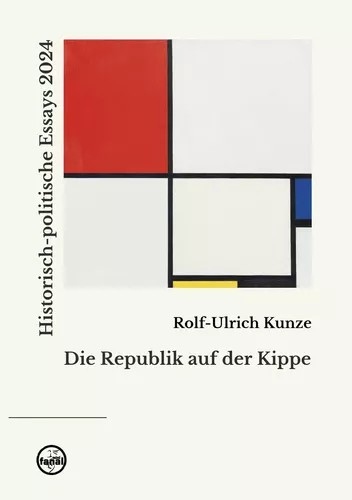
The historical-political texts of the year 2024 under the title "Die Republik auf der Kippe" (The Republic on the Brink) are an anti-chronological diary of uncomfortable, troublesome questions: Will Berlin become Weimar after Bonn didn't? Is Washington already beyond Weimar? Will EU-Europe finally defend itself adequately against Putin's war? Are we heading towards an age of autocracy and a post-constitutional state? What will become of supranationality in the EU? Has so-called German unity always been an illusion, not just since 1990? What chances does the progressive policy of transitioning industrial society towards sustainable growth have? Will German conservatism ultimately once again become a staging post for the rule of right-wing extremism? What significance does history still have as a science of orientation? The answers are "provisionally definitive" in the sense of a character's speech in Robert Musil's Man without Qualities. (blurb)
More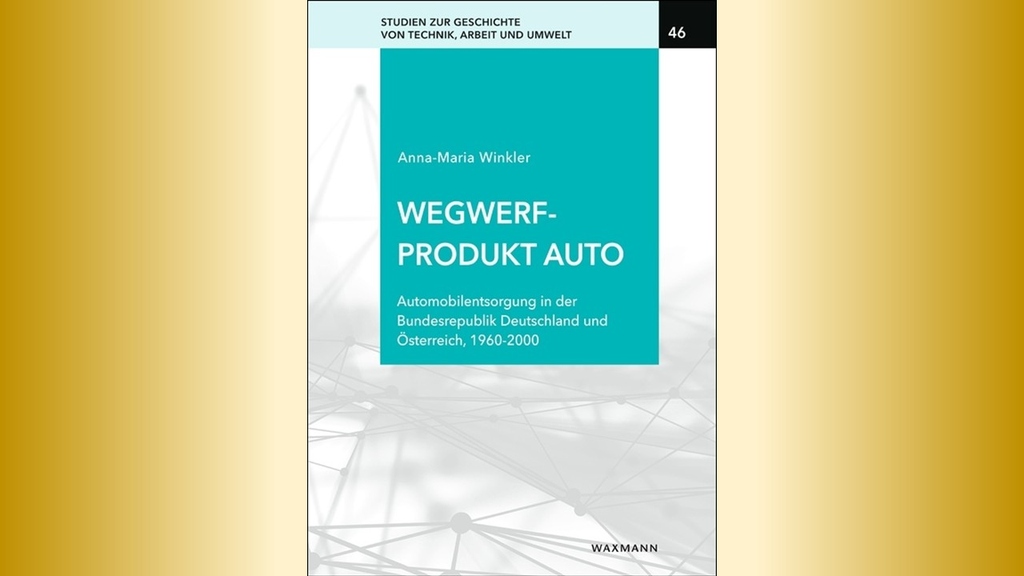
This work by Anna-Maria Winkler examines technical, economic, ecological and political aspects of the disposal of cars in Germany and Austria in the second half of the 20th century. Topics such as scrapping techniques, the limits of automobile recycling, dealing with used tires, product responsibility, etc. are dealt with in the volume, which was published in the series Studien zur Geschichte von Technik, Arbeit und Umwelt and is freely available on the publisher's website.
Read more by clicking here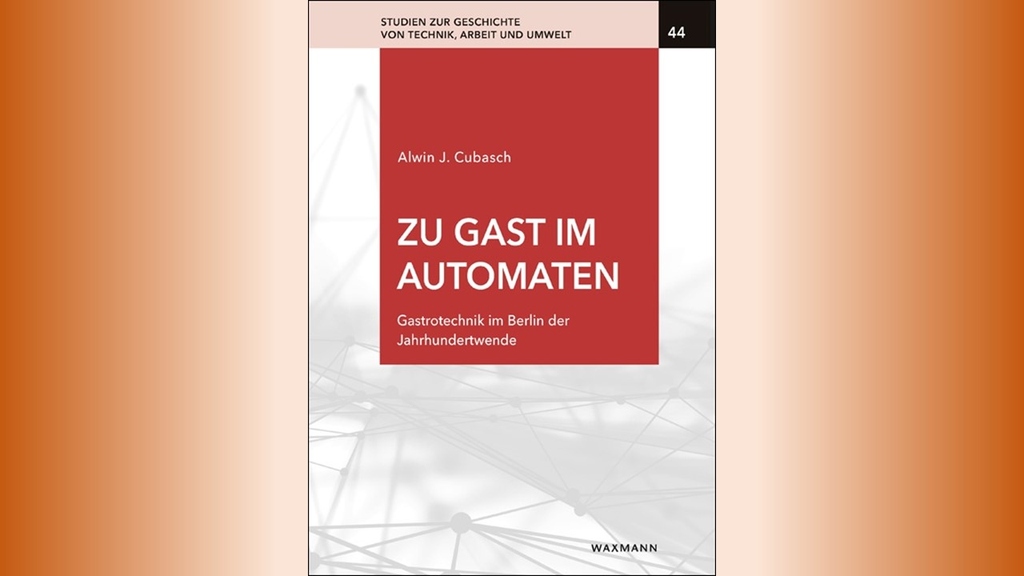
Alwin J. Cubasch's volume illuminates the rise and fall of vending machine restaurants in turn-of-the-century Berlin, shedding light on the scope and limits of technological design motivated during high modernism. The book is published in the series Studien zur Geschichte von Technik, Arbeit und Umwelt, edited by Marcus Popplow and Torsten Meyer and won the VDI Conrad Matschoß prize for history of technology.
More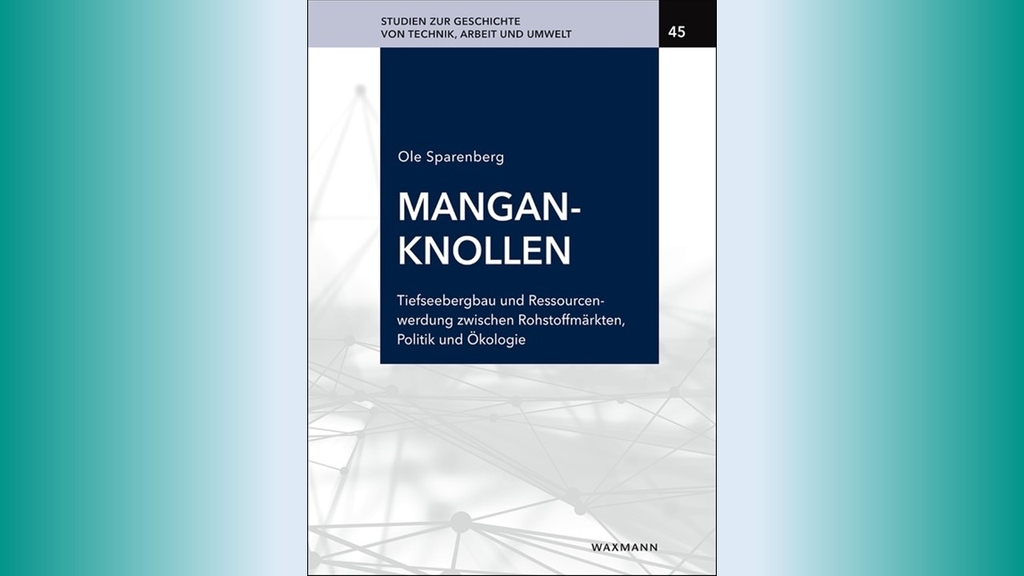
Ole Sparenberg is the first to examine the history of manganese nodules from their discovery in 1873 to the present day. This study shows why an economic interest in these minerals from the deep sea developed from the 1950s onwards, culminating in mining tests in 1978 before the projects were discontinued. It was not until the 21st century that interest in deep-sea mining revived, but today it is increasingly being met with discussions about the ecological consequences.
Read more by clicking here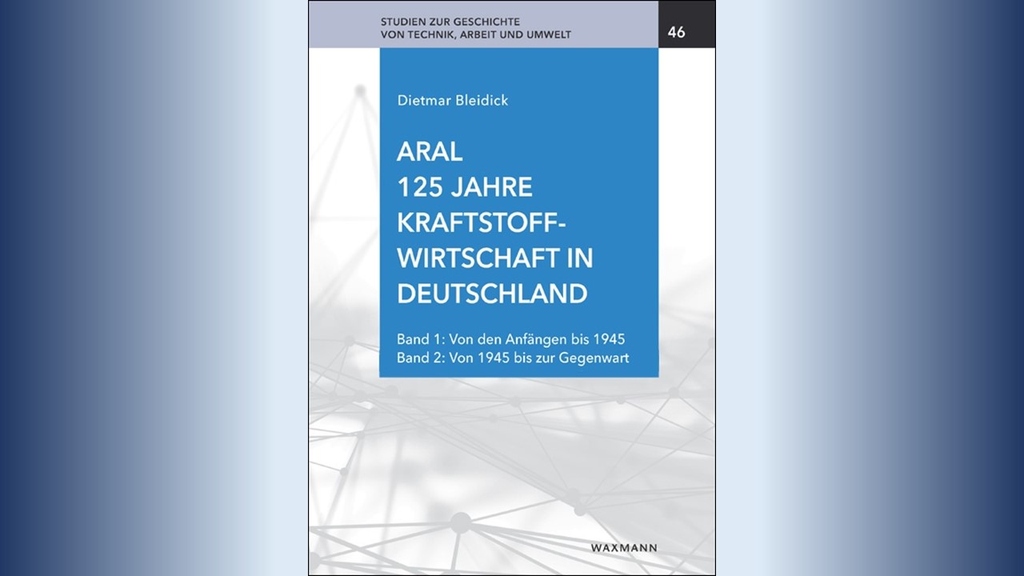
In the series Studien zur Geschichte von Technik, Arbeit und Umwelt, edited by Marcus Popplow and Torsten Meyer, the volume 46 Aral. 125 Years of the Fuel Industry in Germany by Dietmar Bleidick has been published. The two-volume edition traces the 125-year history of the industry for the first time using Aral as an example. In addition to company and product development, the filling station business and the brand, the focus is on social and political conditions, the effects of mass motorization and, last but not least, the price of fuel.
Read more by clicking here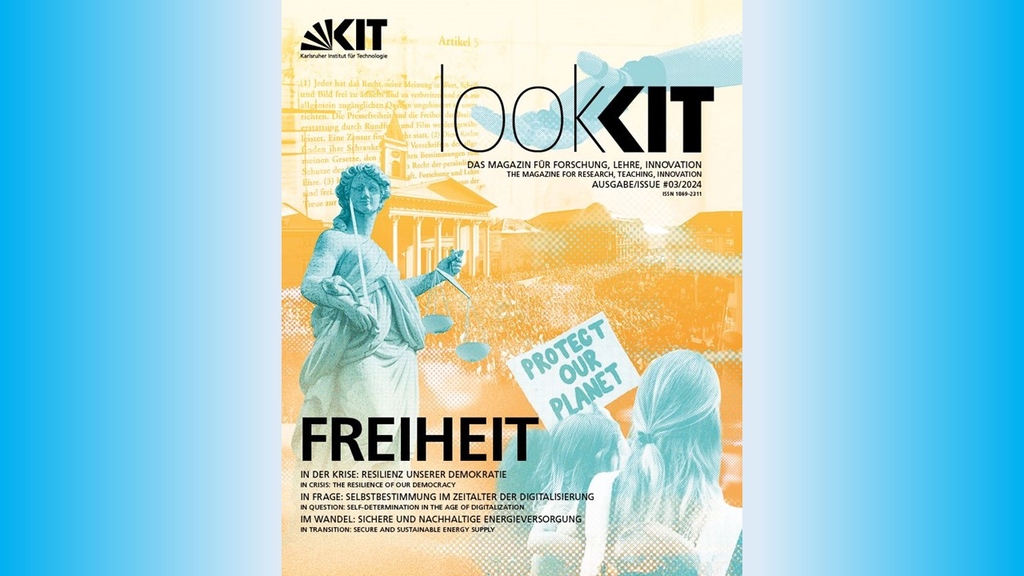
In the current issue of lookKIT, Rolf-Ulrich Kunze comments on the current crisis of democracy and talks about the dangers to freedom and the rule of law posed by right-wing populism (p. 10). On p. 56, Sophia Merkel talks about her family history research; the link to a podcast on the topic can be found on p. 43. In the forum on KIT's approach to right-wing political extremism under the motto "Never again!", Désirée Schauz discussed the attitude of scientists during the Nazi era (p. 33).
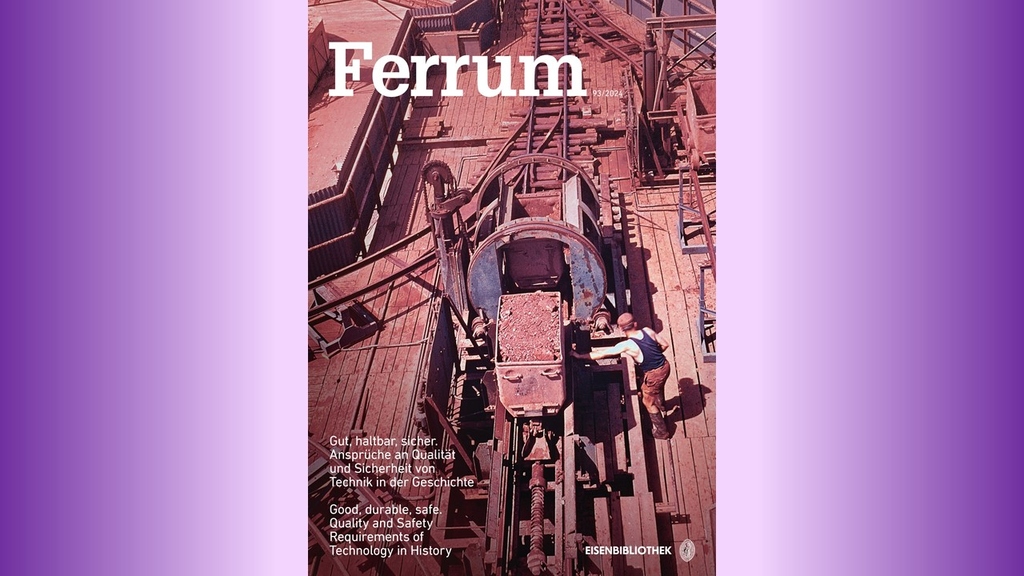
The new issue of the journal Ferrum on the topic Good, durable, safe. Demands on the quality and safety of technology in history is available open access. As a member of the scientific advisory board, Marcus Popplow was jointly responsible for the conception of the preceding conference at the Iron Library (Schaffhausen), Nicole Hesse has a contribution in the issue.
Read more by clicking here
The current monograph "Über Sparsamkeit. A history of culture and mentality" by Rolf-Ulrich Kunze has been published by Kohlhammer. Using numerous sources - from cookbooks, advertising and media reports to advice literature - the book examines how ideas about thriftiness have developed in West Germany since 1950 and how they have become part of everyday life.
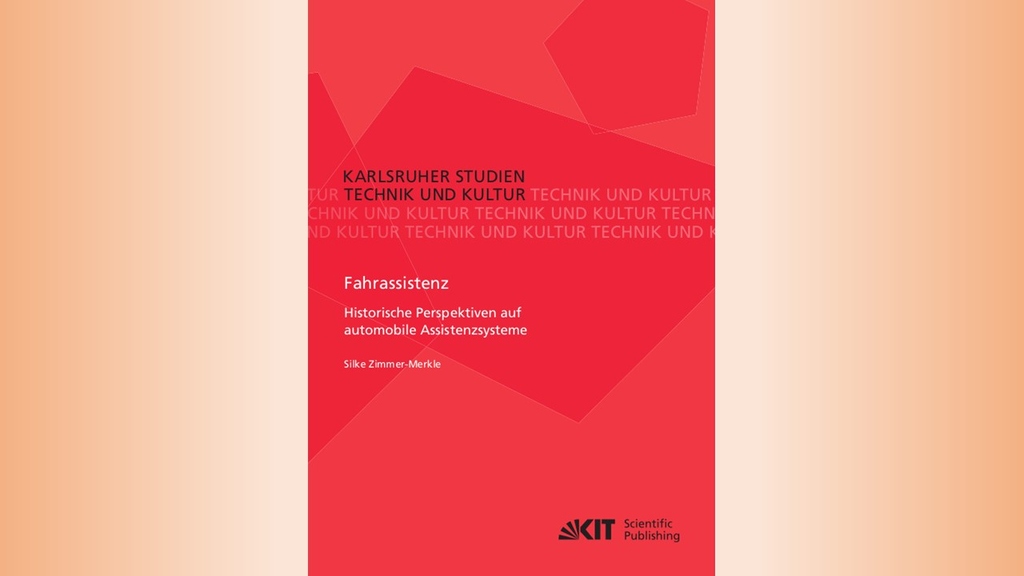
The dissertation Fahrassistenz: Historische Perspektiven auf automobile Assistenzsysteme by Silke Zimmer-Merkle examines the history of automotive assistance systems within the research fields of the history of technology and technology assessment, which is told in a broad perspective from the end of the 19th century to the present day. Since assistance systems in cars are often thought of as enabling technologies for autonomous driving and are formulated as such in the discourse, a historical investigation of this subject, which has not yet been systematically explored by historians, is an obvious step, not least in order to expand the scientific treatment of the topic to include a historical perspective.
Read more by clicking here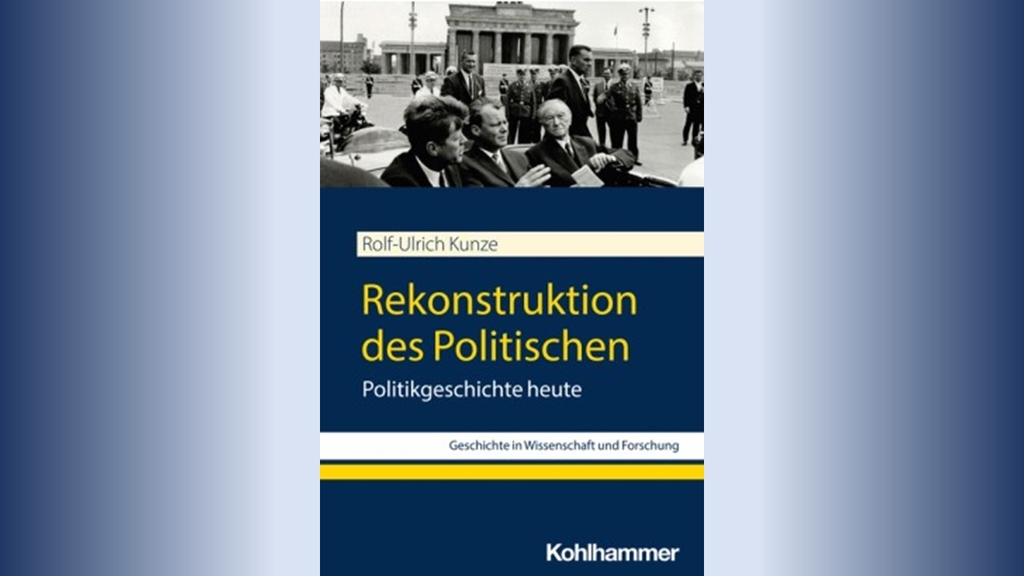
Rolf-Ulrich Kunze's publication Rekonstruktion des Politischen makes the relevance of political history as a science of orientation for political action in peace and war, democracy and dictatorship, internal and external politics visible again. It also shows the relationship to other universal approaches.
Read more by clicking here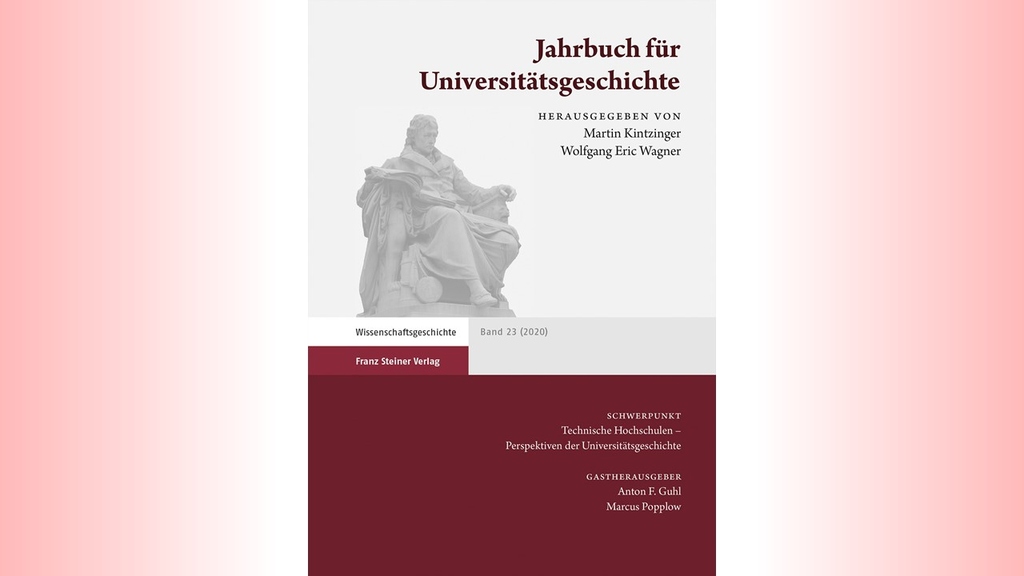
The thematic focus Techische Hochschulen - Perspektiven der Universitätsgeschichte in the newly published Jahrbuch für Universitätsgeschichte (Franz Steiner Verlag) goes back to a lecture series at the Department of History under the direction of Anton F. Guhl. Here, for the first time, a broader spectrum of TH/TU history is examined. The editors of the focus are Anton Guhl and Marcus Popplow.
Read more by clicking here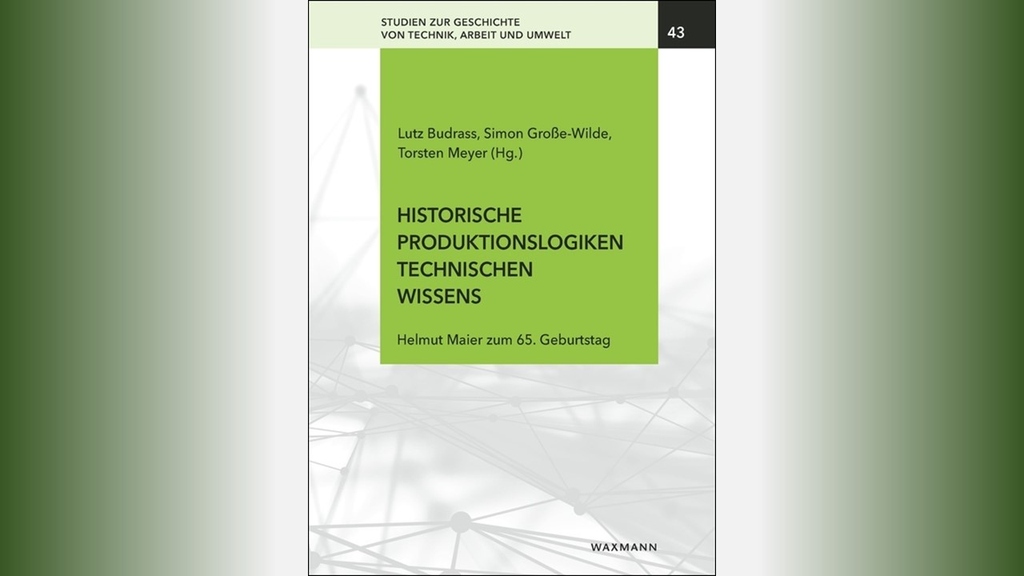
A new volume of "Studies on the History of Technology, Work and the Environment" has been published by Waxmann Verlag (Münster) under the title Historical Production Logics of Technical Knowledge. The contributions are dedicated to Helmut Maier on his 65th birthday and address current, interdisciplinary topics in the history of technology, the environment and science.
Read more by clicking here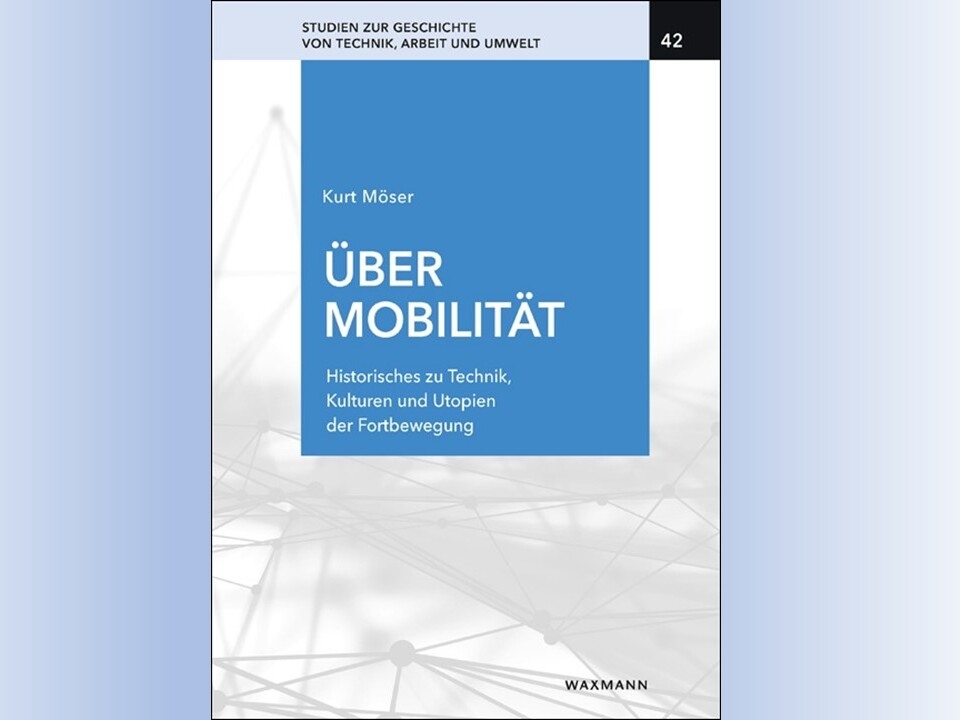
The history of mobility is characterized by fascination and hopes for the future. Kurt Möser's texts collected in this volume show this for automotive mass motorization as well as for amphibious vehicles or electric airships. The volume is available for free download here. It opens the new edition of the "Studies on the History of Technology, Work and the Environment" published by Waxmann Verlag (Münster).

Anniversaries are a central point of reference in our historical culture - but the anniversary itself also has a history. Both are especially true for universities as social elite forges, which derive their prominent function also from their tradition. Academic foundation anniversaries thus refer to central fields of social relevance attributions. This is shown in the newly published anthology "Staged History. Mediality and Politics of European University Anniversaries from 1850 to Today". During an online forum on November 22, 2021 , the editors Anton F. Guhl and Gisela Hürlimann presented the publication. The volume is available for download in PDF format.
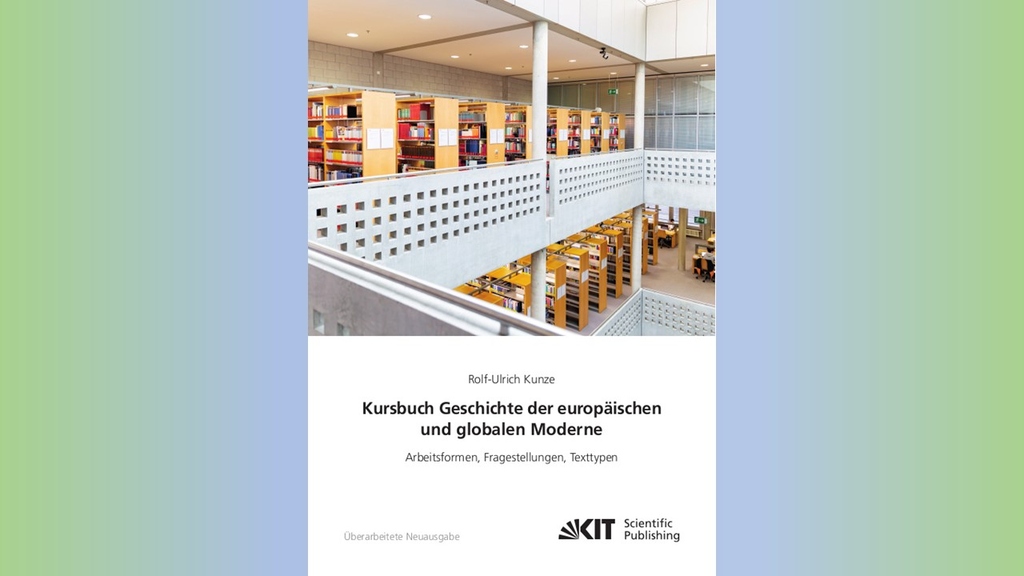
As part of a BMBF project, Karlsruhe Scientific Publishing KSP has published the extended new edition of the "Kursbuch Geschichte der europäischen und globalen Moderne. Arbeitsformen, Fragestellungen, Texttypen" by Prof. Rolf-Ulrich Kunze as a free open access ebook and print-on-demand: https://publikationen.bibliothek.kit.edu/1000148814.
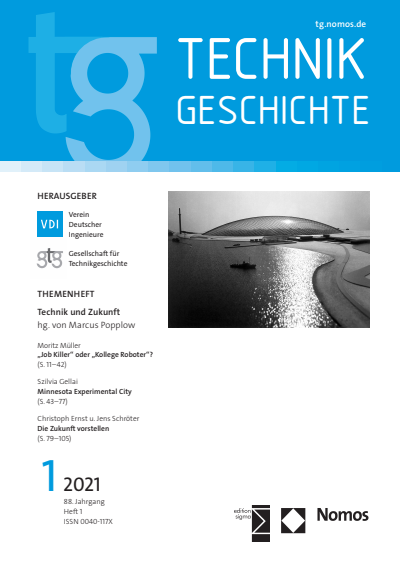
The current thematic issue "Technology and Future" of the academic journal "History of Technology" contains an introduction to the topic by Marcus Popplow as well as contributions by Moritz Müller on the discourse on industrial robots at IG Metall, by Szilvia Gellai on the Minnesota Experimental City and by Christoph Ernst / Jens Schröter on technology demonstrations in digital media.
More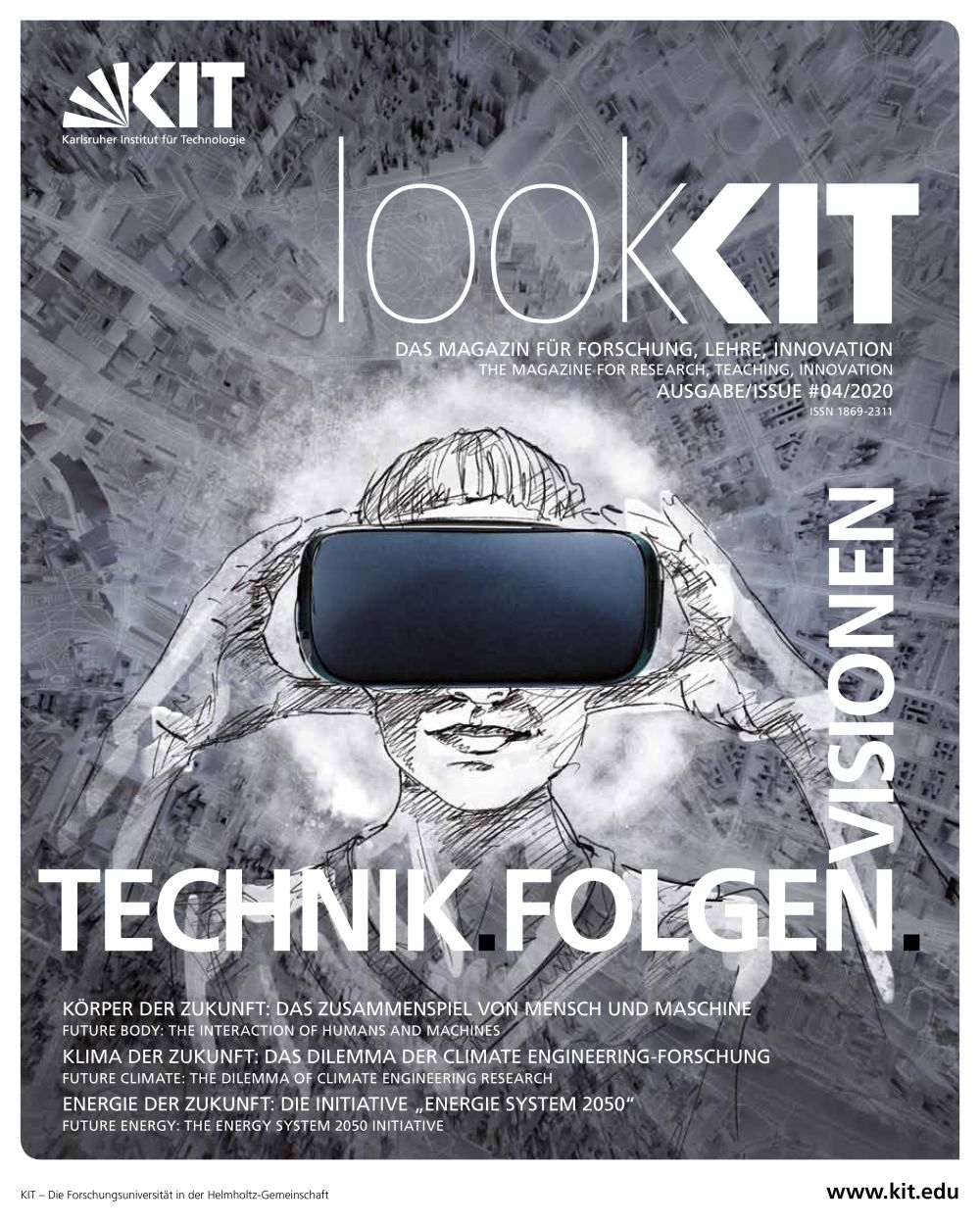
The new issue of lookKIT, KIT's magazine for research, teaching, and innovation, is dedicated to the topic "Technology Consequences and Technology Visions". It contains an interview with Armin Grunwald and Marcus Popplow on the topic of "Technology Futures". In another article, Kurt Möser reports on mobility utopias yesterday and today.
More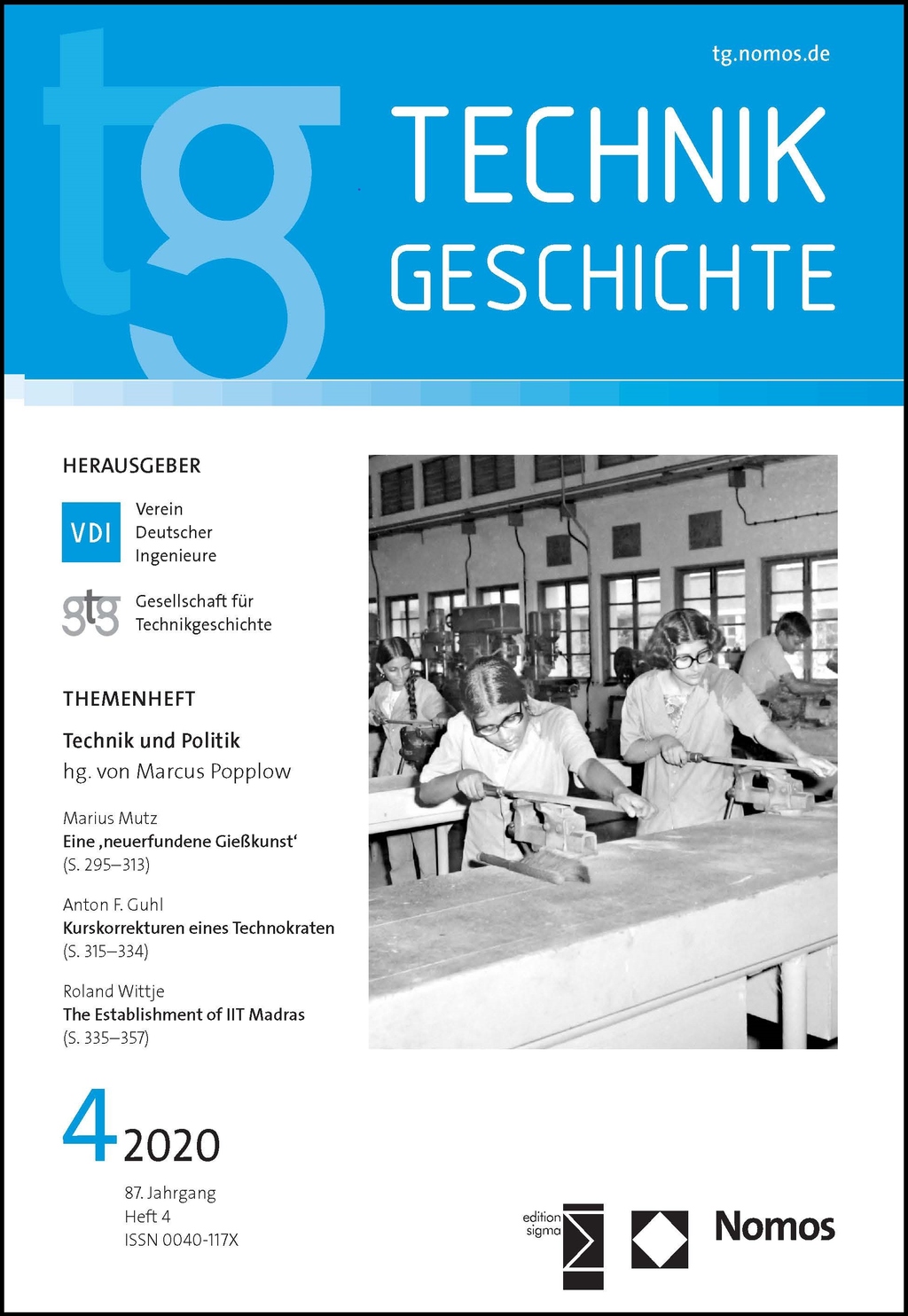
The thematic issue "Technology and Politics" of "Technikgeschichte" contains three contributions from the annual conference of the Gesellschaft für Technikgeschichte (GtG) in Karlsruhe in 2019. They are dedicated to engineering experts in the early modern era (Marius Mutz), the political activities of the founder of computer science at the TH Karlsruhe, Karl Steinbuch, (Anton Guhl) and the founding history of the Indian Institute of Technology (IIT) Madras (Roland Wittje). The editor is Marcus Popplow.
More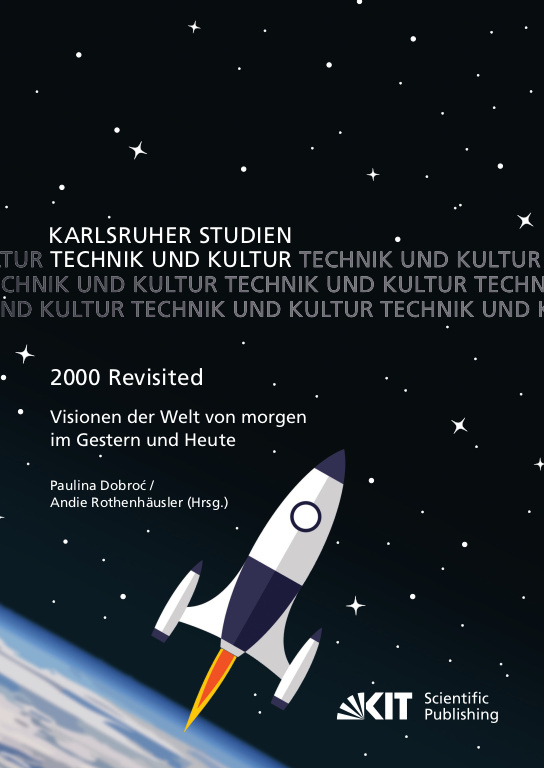
The volume edited by Paulina Dobroc and Andie Rothenhäusler originates from a conference at KIT and addresses past and present technology futures using case studies and programmatic articles as examples. A contribution by Marcus Popplow discusses the study of technology futures from a technology history perspective.
More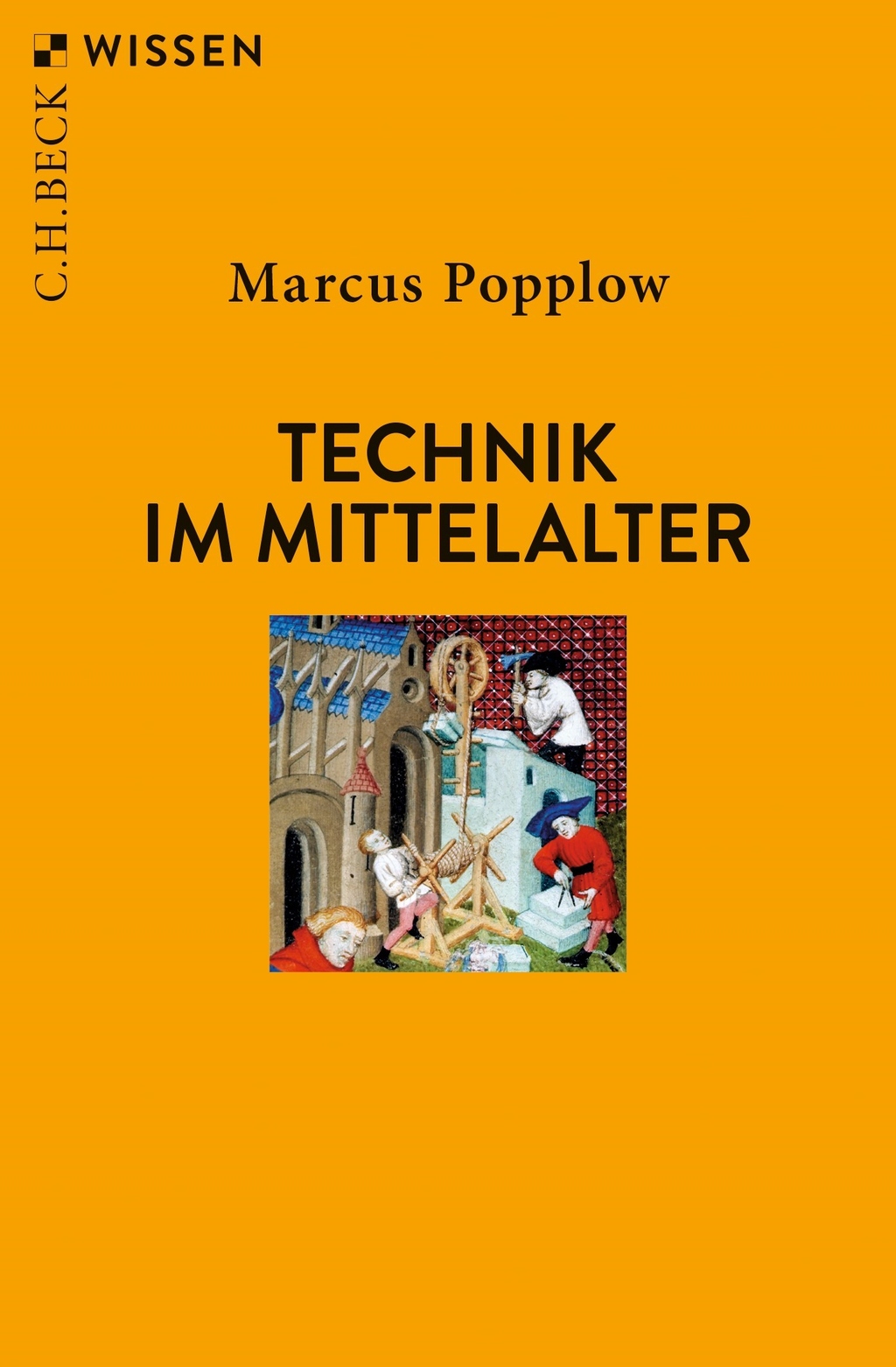
The second edition of this overview of the cultural history of technology in the Middle Ages, which was awarded the Conrad Matschoss Prize by the Association of German Engineers, has recently been published. The publisher's cover text:
The Middle Ages were also a time of technical innovation. Architects, early engineers and representatives of the crafts transcended the boundaries of traditional knowledge. They created new things in the building industry, in mill and weapon technology or in the textile trade, they invented eyeglasses, the mechanical clock and book printing.
Technology began to change people's living conditions as early as the Middle Ages - Marcus Popplow gives a vivid and informative overview of this.
More
We are surrounded by complex things that operate simultaneously yet are hidden behind interfaces. This is true for the data networks in which we move as well as for autonomous systems that process our data. Smart watches, artificial intelligence, or CRISPR-Cas9 are recent examples of such black boxes, while letterpress printing or even the earliest stone tools are historical ones.
In this interdisciplinary volume, sealing contexts of these black boxes are examined or attempts to open them are presented. The focus of the investigations is on individual case studies on the basis of which theoretical investigation tools are tested. Theoretical impulses come from science and technology studies and media studies, are inspired by the material culture turn, but also by (digital) phenomenology and hermeneutics. Thirteen contributions in four sections map the field in an exemplary manner; these are embedded and rounded off by four responses and a supplementary contribution on the history of ideas of automata. The volume thus provides an overview of current technology research in Germany using the example of the black box, but grounding it in the history of the discussion.
Eckhard Geitz, University of Freiburg; Christian Vater, KIT Karlsruhe/University of Heidelberg; Silke Zimmer-Merkle, KIT Karlsruhe (eds.).
More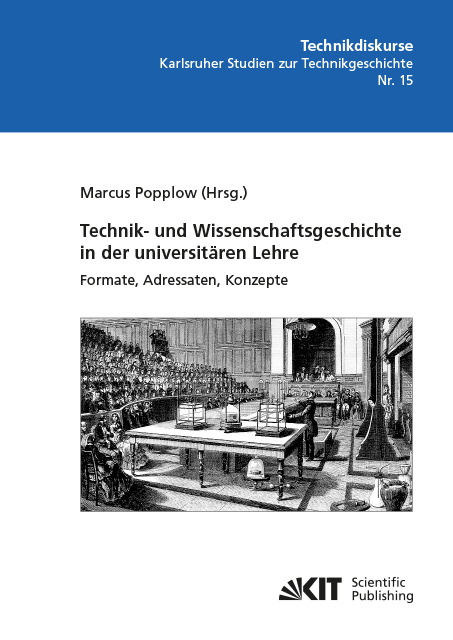
This volume brings together for the first time exemplary examples of three categories of teaching in the history of technology and science: introductory courses, object-oriented as well as interdisciplinary teaching. The resulting overview encourages experimentation in the teaching of the history of technology and science, the expansion of exchange about it, and, not least, greater appreciation of the commitment of many lecturers in teaching.
More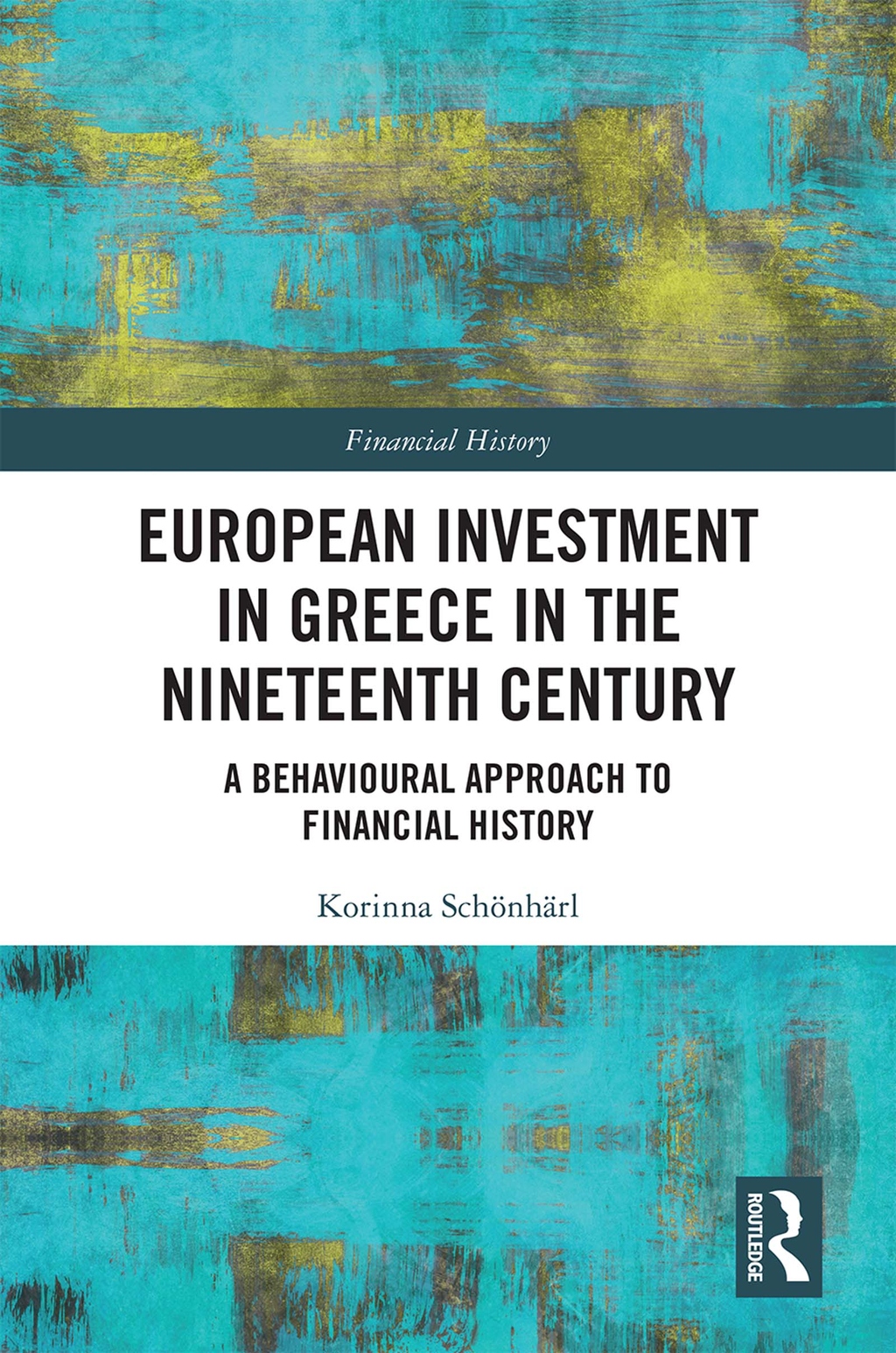
Banking historiography often does not sufficiently take into account bankers’ deliberations of their decision making, but rather limits investigation to considerations of profit maximisation. This book shows that the decision-making processes of nineteenth-century bankers contemplating high-risk financial markets like Greece are just as complex as present-day investment decisions.
The book, now published in English after a first German edition, offers in-depth studies of decision making in concrete historical situations, considering political and economic circumstances and also the individual background of the actors concerned, including a reflection on the influence of cultural movements such as Philhellenism. Employing methodological inspirations from the field of behavioural finance, the book analyses a broad range of published and unpublished English, French, Greek, German and Swiss sources on European investment in Greece between 1821 and the Balkan wars.
More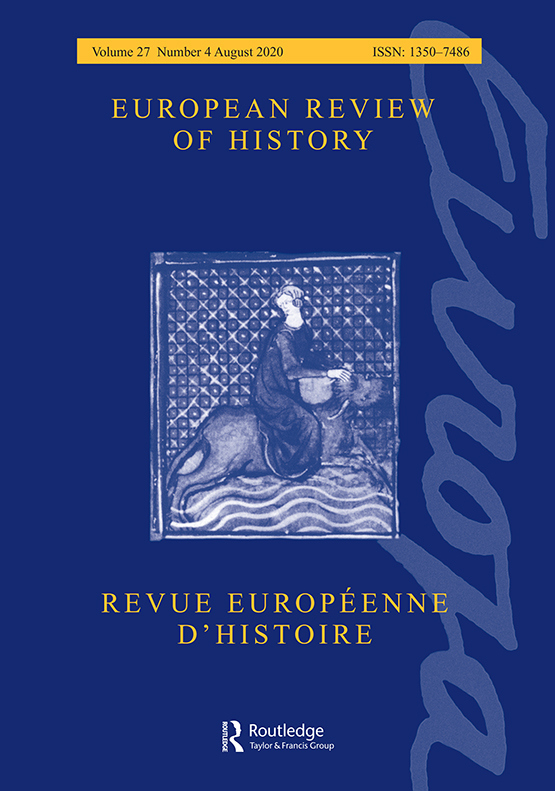
The supply of mineral resources came back into the headlines a few years ago, especially in the context of rare earth metals and their emphasis for high-tech applications and the energy transition.
The contributions to this special issue in the series 'European Review of History: Revue européenne d'histoire' (vol. 27, issue 3),edited by Ole Sparenberg (Karlsruhe) and Matthias Heymann (Aarhus ), deliberately bring together case studies from different time periods from the early 19th century to the late 20th century and different regions as well as national, transnational and international levels. All contributions focus on notions of scarce and critical resources, asking how and by which actors scarcity or criticality was determined and negotiated, which interests and contexts influenced notions of resource scarcity, to what extent actors instrumentalized resource scarcity, and how notions of scarce and critical resources were linked to broader political, social, scientific, and environmental notions.
More
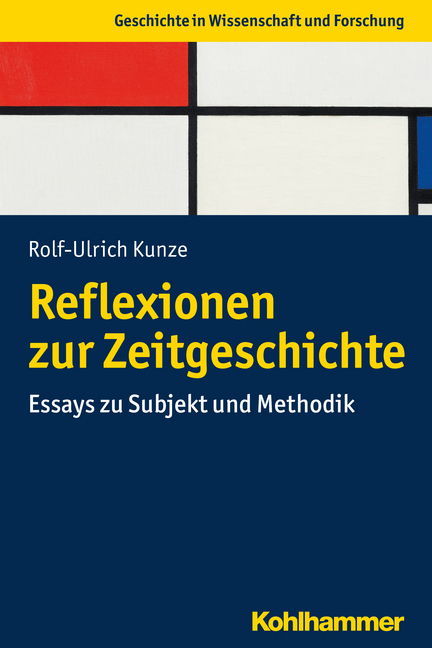
In his essay volume Reflexionen zur Zeitgeschichte. Subjekt und Methodik, Kohlhammer, Stuttgart 2020, 176 p., Prof. Dr. Rolf-Ulrich Kunze addresses the following questions that are relevant to society as a whole: When does a democracy fail? How must political education develop further in order to successfully meet the new challenges? Is our view of history influenced by globalization? In doing so, he takes a stand in the current debate on historical materialism and discusses the often bizarre relationship between people and things.

Hardly any other topic shapes the current political debate as much as nationalism. In his new book "Nationalism Illusions and Realities", Prof. Dr. Rolf-Ulrich Kunze deals with nationalism, explaining its historical conceptual and functional history, different types of nationalism theories, and the connection between nationalism and religion. Nationalism aims at identity, at emotionality. That is why Karl Wolfgang Deutsch speaks of nationalist thinking as an "epistemological catastrophe". Nationalism makes blind for the difficult and gray-stepped reality, because it creates new realities and simple, black and white relations. The nationalist world breaks down into us and them, good and evil. On the one hand, the nationalist-generated imagined community enables tremendous and violent achievements in war and peace; on the other hand, it is neither politically nor emotionally controllable - although all nationalists assume it is. Escalation is inscribed in it. Nationalism is a dangerous temptation for politics because it seems to open up an easily won resource. It offers boundless acceptance for many things that cannot be pushed through in the lowlands of laborious everyday negotiation.

Dr Anton F. Guhl "Paths out of the "Third Reich" - The Denazification of the Hamburg University as an Ambiguous Post-History of National Socialism" published by Wallstein Verlag.
More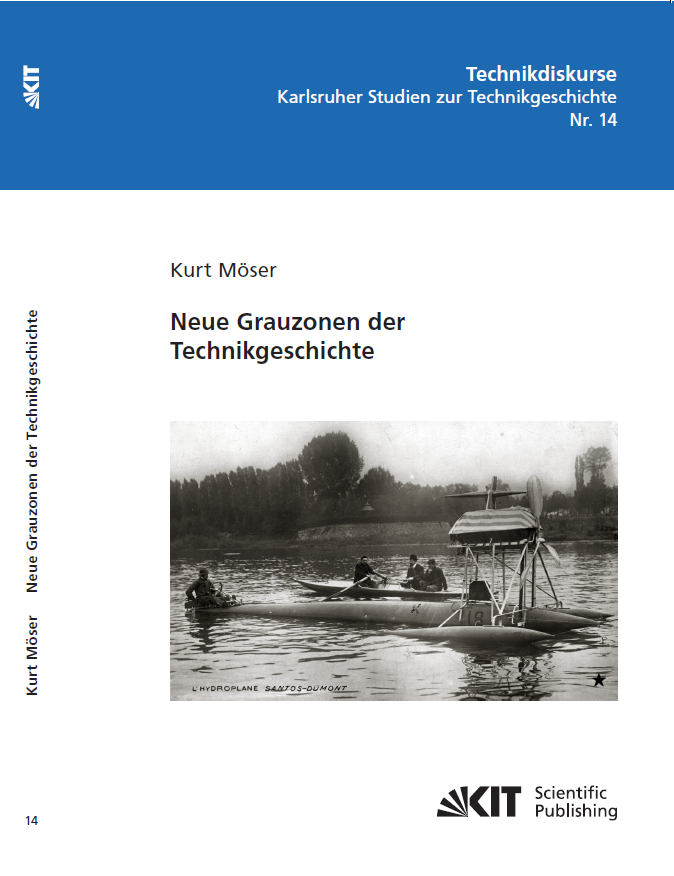
In this continuation of "Grey areas of the history of technology" Kurt Möser again breaks new ground in more unusual fields of our technical-industrial past. The author looks curiously at topics that only seem to be on the edge of our history. Some things and places - a Russian camera, for example, a barely used airport, a racing boat or a misconstructed armoured ship - then take on new meaning. Criminals are interpreted as creative users of technology, surprising connections between magic and early aviation are established, other stories of the origins of technical modernity are told, such as the origins of the computer from the target computers of old battleships. The essays take a fresh look at old themes and old fields such as lignite, peat or the parks of the Romantic period. And they thematise unpleasant issues, such as the curiosity about the death of an airman or the alleged 'recycling' of the fallen of the First World War. A group of essays deals with eccentric actors in technology, such as Alberto Santos-Dumont, Anthony Fokker, Lawrence of Arabia or Hiram Maxim. In addition to these historical examples, Möser also talks about his own technology biography, subjectivity and fascination with technology. In his book he provides suggestions on how to tell grey area technology stories in the future. The essays offer stimulating reinterpretations for specialist scientists, but above all aim to show all those interested how exciting and highly significant writing the history of technology is for understanding our present. (blurb) Further information.
Link_more
The history of the family is one of the well-researched cross-sectional areas of social and mental history. However, this is true for the early modern period and the most recent history from 1789 to 1914, not for that of the 20th century. The history of family time is a domain of family sociology, pedagogy, and psychology. It is presented as a resource to be developed in dialogue between historians and lay people interested in family history. A theory section deals with the motivation for studying the family within and outside academia, epistemological perspectives, and main lines of family development from the nuclear family to the patchwork. The practical part deals with concrete source problems of family history project work. (blurb)
More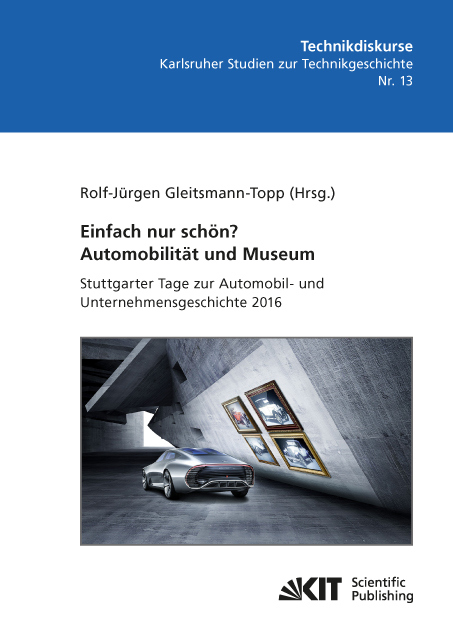
The studies analyse and discuss the history, theoretical concepts and current presentation trends of various leading European automobile, mobility and transport museums. In addition, it will be shown what role technology museums play in the social discourse on technological change and what paths are taken to attract visitors in the highly competitive leisure market of modern society. (blurb) Further information.
Link_more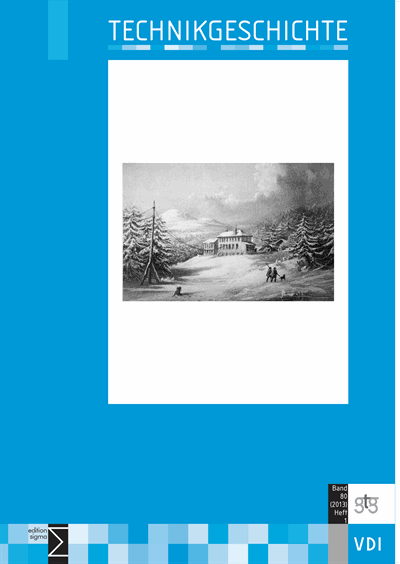
TECHNIKGESCHICHTE is the German language journal for research in the history of technology. Founded in 1909 as the "Jahrbuch Technikgeschichte", the journal is today the most traditional German periodical devoted to the entire field of the history of technology from its beginnings to the present.
TECHNIKGESCHICHTE publishes original articles on the historical development of technology in its scientific, social, economic and political contexts.
With its interdisciplinary concept, TECHNIKGESCHICHTE addresses not only technology researchers and historians of technology, but also social scientists of all sub-disciplines, actors of technical development, e.g. in associations, companies and politics, as well as interested laypersons who want to reflect the technical-social change in its integration into the historical process.
TECHNIKGESCHICHTE provides comprehensive information on current research in the history of technology: through an extensive review section with reviews of German and foreign-language literature on the subject, through museum and exhibition reviews and a regular journal review with references to topic-related articles in other journals, also internationally. (info text) Further information.
Global history has been an established part of history for a decade. One of its basic demands is to move away from the Eurocentrism of research and analysis of world-historical developments. A glance at the important historical works of the 20th century alone shows that historical research was well aware of these questions and problem areas. World history thus appears as a precursor of global historical approaches. The book provides a vivid and exemplary introduction to the models and thought structures of global history and, through a comprehensive analysis, makes clear how global history has developed, what is meant by it, and what perspectives are associated with this new field of research. (blurb) Further information.

Publications on the history of the Church and religion in Baden, Volume 6.
After its separation from the Reichskirche in 1934, the Baden State Church was the fourth intact state church alongside the Lutheran state churches of Bavaria, Württemberg and Hannover. The author arrives at this reassessment of the Baden case against the background of an examination of the dense state of documentation and research on the history of the Evangelical Regional Church of Baden in the Nazi era as well as longitudinal studies of parish history. This is proven by the attitude of the majority of the church-positive pastors and the church leadership. (blurb) Further information.

The title alludes to the Dutch family history of Geert Mak: My father's century', an exemplary history of society and mentality in the Netherlands. This, and Walter Kempowski's 'German Chronicle', is the basis of the very different family biography of Rudi Kunze (1925-2001) and Gerda Kunze (1926-2010), which was both a Hollywood-ready film plot and a characteristic German story in the half century of the World Civil War. (blurb) Further information.
Link_more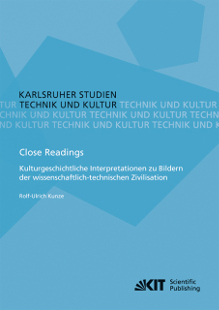
The essays in this volume on images of scientific-technical civilization in the 19th and 20th centuries deal with approaches to the social constructions of a history of fascination with technology. They are a contribution to establishing the field of historical technology acceptance research at KIT. Particular attention is paid to the history of mobility. (blurb) Further information.
Link_more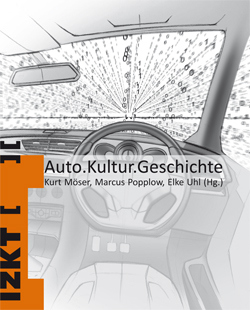
This volume examines the cultural dimension of the automobile in the past and present. In his contributions, automotive culture, cultural history and automotive history are intertwined in different ways. The subject is less how people build cars in ever new technical variants. Rather, the theme is how people deal with, react to and live with the cars with which they are inevitably confronted in modernity. Perhaps the contributions, although less explicit, are even conversely on the trail of what these automobiles actually do with people as their permanent companions.
The contributions gathered here on such and other questions are based on two IZKT event series on the occasion of the Baden-Württemberg "Automobile Summer" 2011. (blurb) Further information.
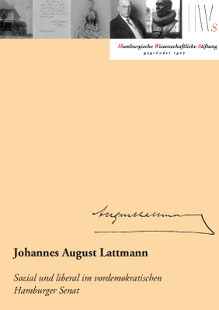
Johannes August Lattmann played a special role in Hamburg's political culture. As a businessman, he went overseas for two decades and became a partner in the New York trading house Gustav Amsinck & Co. Back in Hamburg he made a name for himself through generous foundations. In 1907 he was one of the donors of the Hamburg Scientific Foundation, whose board of trustees he belonged to in later years. His election as senator in 1912 was a novelty and was only made possible by an alliance of liberal bourgeoisie and social democracy. Lattmann advocated a plural coexistence of political positions and denominations, advocated equal voting rights and worked with protagonists of the women's movement. When he left the Senate in 1919, he became manager of the newly founded Warentreuhand to restore credit lost to the German economy. (blurb) Further information.
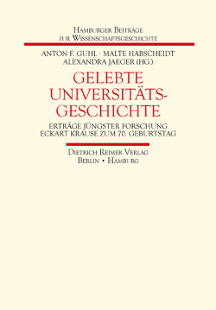
The articles in the Festschrift present new research on the history of Hamburg University: they present previously little-received sources such as university newspapers, master's theses, and student pamphlets, examine long-term university developments, provide new insights into science under National Socialism, and examine conflicts surrounding "1968". The reprint of a central text by Eckart Krause, a contribution on the work and influence of the honoured, as well as forewords by Hamburg's Senator for Science Dorothee Stapelfeldt and the University's Vice President Holger Fischer round off the volume. (blurb) Further information.
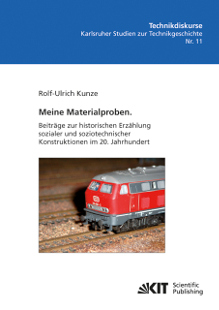
Material sample is to be understood literally. The essays from the field of historical technology acceptance research examine the nature of artifacts and notions of thing worlds for their value as a source of historical representation. Everyday life and the things close to us are in the foreground. The epistemological interest is to trace things in a descriptive way as they are close to us. (blurb) Further information.
Link_more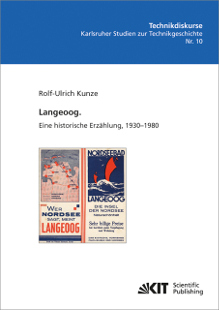
Whoever says North Sea, means Langeoog, says it on an advertising brochure for 1931/32, but what does Langeoog stand for? What social constructions were associated with the island between the 1930s and 1980s? Who were their bearers and what were their ideas about North Sea holidays? What is changing about it before, during and after National Socialism? The narrative essays on selected aspects of the social and mental history of Langeoog in the 20th century explore these questions. (blurb) Further information.
Link_more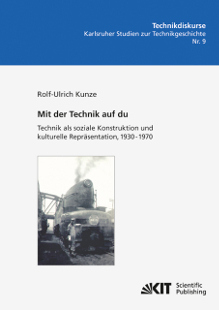
The technology essays open up pictorial sources for the contextualizing, social-constructivist cultural history of technology, which have so far been little or not at all the subject of historical observation: among others, graphics by Carl G. Evers from the 1950s, American and German model railway magazines and a traffic picture book. The epistemological interest is the (re)visualization of technology, which we do not or no longer perceive as technology. (blurb) Further information.
Link_more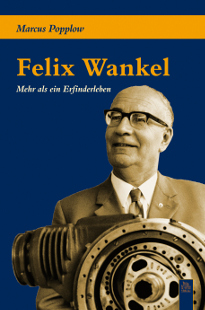
The name Felix Wankel is inseparably linked with the invention of the rotary piston engine: He made the passionate machine dreamer (Wankel about Wankel) world-famous in the 1960s. Fascinated by the world of technology, he devoted a lifetime of concentrated effort to his visions - the Wankel engine became an uncomfortable challenge for automotive companies around the globe.
Now, for the first time, historian Marcus Popplow pays tribute to Felix Wankel in a biography that also traces the hitherto little-known phases of his life. New findings were provided by comprehensive source research, including in the archives of the Technoseum in Mannheim, which holds the inventor's estate.
Wankel loved inventing, but he wanted to be more than just an inventor. As a young man, Wankel was committed to national socialist objectives, and after his great success he repeatedly criticised the automobile industry for its lack of courage and took an offensive stance in favour of animal protection.
With the unswerving adherence to his ideas, the autodidact Felix Wankel was an outsider all his life, which ultimately also applied to his private life. This richly illustrated biography traces the path of a personality as exciting as it is enigmatic (blurb).
Note: This publication is out of print.
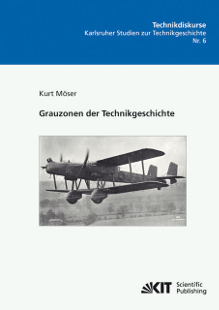
The essays deal with seemingly secondary topics of research in the history of technology, from material histories of technology nostalgia, the mechanization of the sky, machine sensitivities such as balancing and the strain on pilots, an interpretation of breaking down, the luxury economy of horses, to reflections on the history of the body's technology and new strategies for collecting everyday technology in museums. (blurb) Further information.
Link_more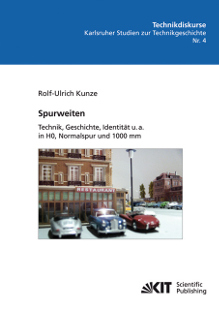
Tapping sources is the main concern of these social constructivist essays. Among other things, they deal with railway gauges that were relevant to the author's technical biography and may be relevant to other biographies. To contextualize the personal in the structural, to make visible the socialization and fascination of technology in the late mass consumer society, is the goal of these reflections, which are based on Anglo-American historiography. (blurb) Further information.
Link_more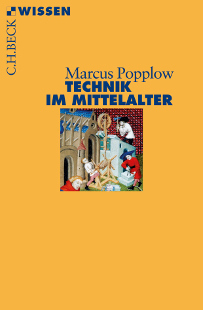
There was hardly any area of the medieval world where technical progress did not leave its mark - be it the art of watchmaking, mill technology, construction, weapons technology or the black art of printing.
Marcus Popplow offers a competent overview of the history of medieval technology, of progress and resistance, of technology transfer and the role of craftsmanship and much more that is worth knowing in this context. (blurb) Further information.
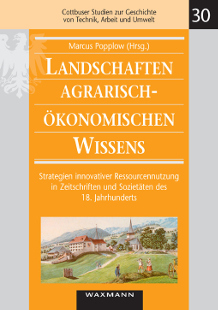
Cottbus Studies on the History of Technology, Labour and the Environment, Volume 30
To be able to use natural resources as comprehensively as possible by building a systematic knowledge base: This was the aim of the 18th century economic societies, which united administrators, scholars, landowners and clergymen throughout Europe. The range of their activities was complex. This included the recording of basic economic data of a territory as well as the creation of agricultural trial plots or the tendering of price issues, for example for the introduction of new industrial plants or protection against livestock diseases. Corresponding findings have been published extensively in both scholarly and popular educational media.
The knowledge-based access of the economic societies to plant and animal resources was formed in an epoch that was repeatedly confronted with famine, but at the same time was on its way to a consumer society. The strategies developed in this context were in many respects to become groundbreaking for modernisation processes in the 19th and 20th centuries.
This volume is the result of a joint conference of the Chair of the History of Technology at the BTU Cottbus and the Research Centre for European Enlightenment in Potsdam. The case studies of individual law firms and their publications deal with aspects of environmental and agricultural history as well as those of media, science and enlightenment history, thus opening up an interdisciplinary field of research. (blurb) Further information.
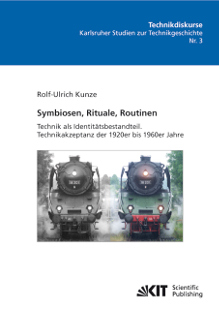
Using selected examples and sources from the 1920s to the 1960s, the social constructivist essays on technology rituals and the acceptance of technology offer a close-up view of some source forms, some of which have received little attention to date, supported by the epistemological interest in their identity-forming, i.e. socio-cultural significance, their social life in our lives. This involves implementing the approaches of the social construction of technology (SCOT). (blurb) Further information.
Link_more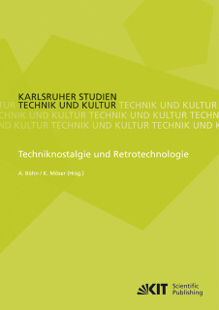
Nostalgia has so far been considered a general cultural phenomenon, but hardly in its relation to technological development. In addition to contributions on the relevance of old technologies, the volume contains analyses on three technical fields: Mobility (cars and trains), architecture and urban planning (real and virtual retrospaces, historisms in construction and design, and post-apocalyptic nostalgic utopias) and technical media (photography, film and video games). (blurb) Further information.
Link_more
